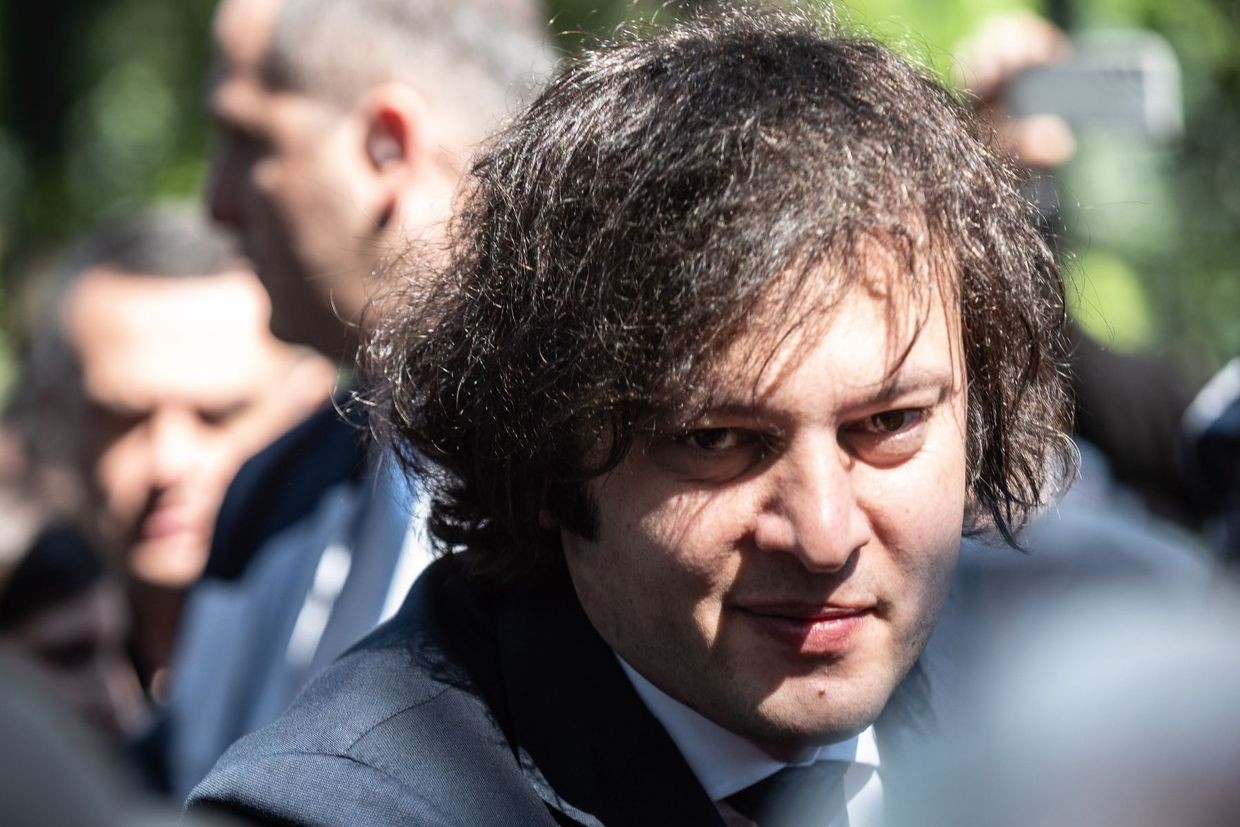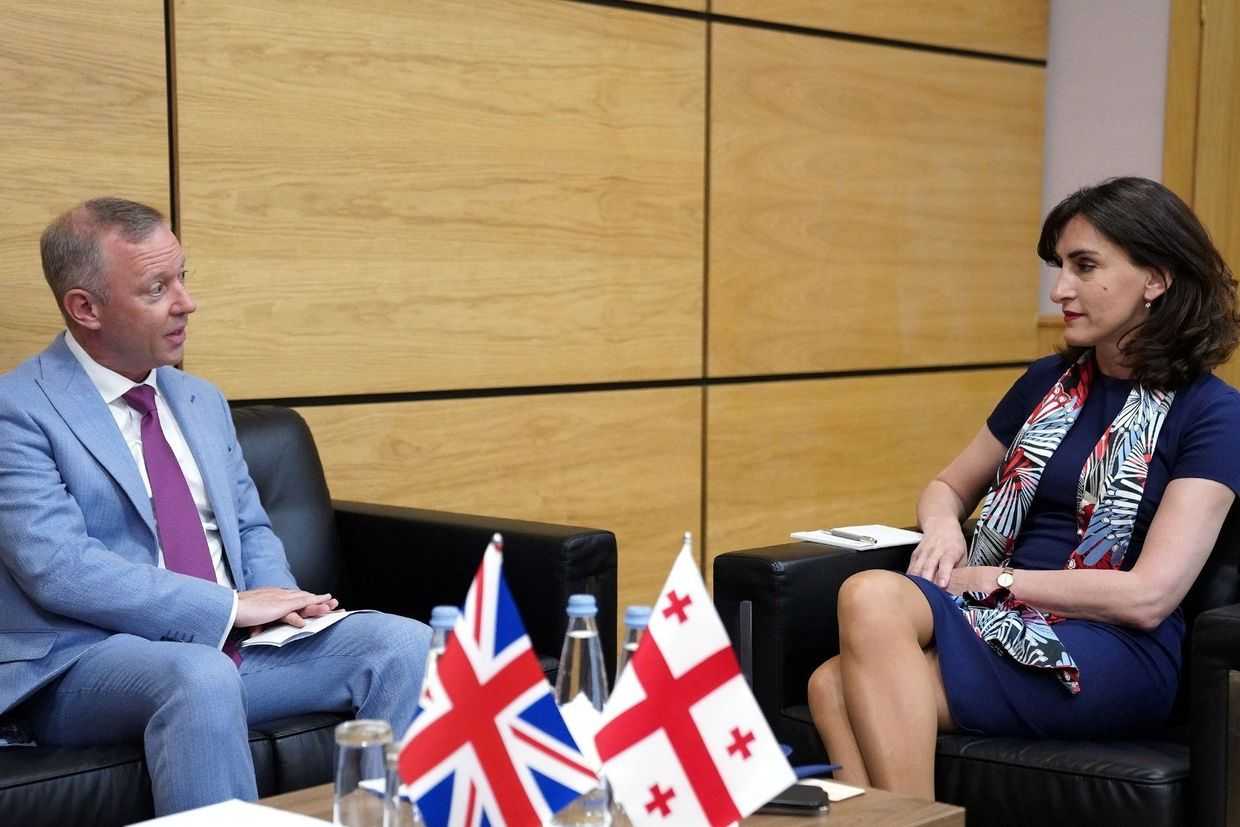
Prime Minister Irakli Kobakhidze and other Georgian Dream officials have continued to attack ambassadors from the EU over their alleged interference in domestic politics. In addition, Kobakhidze has repeated past accusations at Ukraine over a recent explosives plot, saying that Kyiv’s ‘attitude’ towards Georgia is ‘deeply concerning’ and ‘extremely alarming’.
The allegations constituted yet another escalation in the rhetoric from the ruling party towards its long-standing Western partners, as well as Ukraine, which had maintained a close relationship with Georgia since the breakup of the Soviet Union.
On Tuesday, Kobakhidze said that a ‘large part of [EU] ambassadors present themselves to Georgian society as ambassadors of hatred’.
‘It is important that ambassadors act, first of all, in good faith, in accordance with the Vienna Convention, and do not blatantly fuel radicalism and hatred in the eyes of the public in our country’, Kobakhidze said, referring to a 1961 convention that emphasises the duty of diplomats to not ‘interfere in the internal affairs of that state’.
Kobakhidze singled out Dutch Ambassador to Georgia Meline Arakelian, who met with the now-detained opposition politician Elene Khoshtaria before she was arrested for writing ‘Russian Dream’ on a Georgian Dream election banner.
‘This is a gross violation of the Vienna Convention, direct interference in democratic elections, and such behaviour is unbecoming of any ambassador’, Kobakhidze said of Arakelian.
The criticism was repeated by Georgia’s Parliamentary Speaker Shalva Papuashvili, who called Khoshtaria an ‘extremist politician’ on Tuesday, and accused Arakelian of ‘encourag[ing] extremism in Georgia’.
Previously, German Ambassador Peter Fischer had been the subject of repeated attacks by Georgian Dream, prompting condemnation from Berlin.
Conspiracy theories on Ukraine and visa-free status to the EU
In addition to attacking Arakelian and other EU ambassadors, Kobakhidze also escalated conspiracy-laden rhetoric at Ukraine on Tuesday, referencing a recent incident in which two Ukrainians were arrested in Georgia for allegedly smuggling explosives into the country.
Earlier this week, Georgia’s State Security Service (SSG) accused Ukraine’s Security Service (SBU) of ordering the explosives to be brought to Georgia, while Tbilisi Mayor Kakha Kaladze said the involvement of Georgian opposition groups in the matter could not be ruled out. Both referenced the upcoming municipal elections on 4 October.
Kobakhidze went further on Tuesday, repeating the accusation that the individuals had ‘received instructions’ from the SBU, but adding more targeted criticism of Ukraine.
‘When the Ukrainian authorities display such a blatant attitude toward our state, it is deeply concerning. This is extremely alarming’, Kobakhdize told reporters.
There has been no response to the allegations from Ukraine as of publication.

Separately, antagonistic comments and theories were also levelled on Wednesday by Georgian Foreign Minister Maka Botchorishvili, who said that the issue of EU integration had been ‘exploited to influence Georgia’s domestic politics’.
The looming possibility that the EU may revoke Georgia’s visa-free status to the bloc in response to the country’s democratic backsliding has become a regular topic of discussion in recent months. Georgian Dream officials have repeatedly accused the EU of using the issue as a form of blackmail, while also downplaying the importance of visa-free status in the first place.
Botchorishvili told Georgia’s public broadcaster that the Georgian government had always acted ‘in good faith’ to enable ‘our citizens enjoy the benefits of visa-free travel’.
‘It is entirely the merit of this government that Georgian citizens today have visa-free access to the Schengen area [of the EU]. There are absolutely no grounds for suspending visa liberalisation’.
However, she later acknowledged that there are measures that can be taken by the EU, but that ‘there must also be valid reasons for the EU to make such a decision’.
The EU has regularly reiterated that the granting of visa-free status is a privilege, not a right, and is conditional on Georgia making progress on democratic reforms. The bloc has also repeatedly warned that Georgian Dream’s current path threatened its visa-free status.
Estonian Foreign Minister Margus Tsahkna made this point explicitly to the Georgian media outlet Formula on Tuesday, saying the responsibility for the suspension of the status would fall on the Georgian government.
Nonetheless, Botchorishvili defended Georgian Dream’s decisions, saying they were necessary ‘to ensure the country’s security and stability’.












